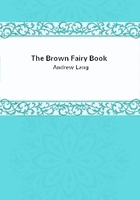But in process of time his pupil gained the means of making what he pleased of himself; for his father having died, was not long survived by his eldest son, an arrant fisher and fowler, who departed this life, in consequence of a cold caught in his vocation, while shooting ducks in the swamp called Kittlefittingmoss, notwithstanding his having drunk a bottle of brandy that very night to keep the cold out of his stomach.Jonathan, therefore, succeeded to the estate, and with it to the means of subsisting without the hated drudgery of the law.His wishes were very moderate; and as the rent of his small property rose with the improvement of the country, it soon greatly exceeded his wants and expenditure; and though too indolent to make money, he was by no means insensible to the pleasure of beholding it accumulate.The burghers of the town near which he lived regarded him with a sort of envy, as one who affected to divide himself from their rank in society, and whose studies and pleasures seemed to them alike incomprehensible.Still, however, a sort of hereditary respect for the Laird of Monkbarns, augmented by the knowledge of his being a ready-money man, kept up his consequence with this class of his neighbours.The country gentlemen were generally above him in fortune, and beneath him in intellect, and, excepting one with whom he lived in habits of intimacy, had little intercourse with Mr.Oldbuck of Monkbarns.He, had, however, the usual resources, the company of the clergyman, and of the doctor, when he chose to request it, and also his own pursuits and pleasures, being in correspondence with most of the virtuosi of his time, who, like himself, measured decayed entrenchments, made plans of ruined castles, read illegible inscriptions, and wrote essays on medals in the proportion of twelve pages to each letter of the legend.
Some habits of hasty irritation he had contracted, partly, it was said in the borough of Fairport, from an early disappointment in love in virtue of which he had commenced misogynist, as he called it, but yet more by the obsequious attention paid to him by his maiden sister and his orphan niece, whom he had trained to consider him as the greatest man upon earth, and whom he used to boast of as the only women he had ever seen who were well broke in and bitted to obedience; though, it must be owned, Miss Grizzy Oldbuck was sometimes apt to _jibb_ when he pulled the reins too tight.The rest of his character must be gathered from the story, and we dismiss with pleasure the tiresome task of recapitulation.
During the time of dinner, Mr.Oldbuck, actuated by the same curiosity which his fellow-traveller had entertained on his account, made some advances, which his aye and station entitled him to do in a more direct manner, towards ascertaining the name, destination, and quality of his young companion.
His name, the young gentleman said, was Lovel.
``What! the cat, the rat, and Lovel our dog? Was he descended from King Richard's favourite?''
``He had no pretensions,'' he said, ``to call himself a whelp of that litter; his father was a north-of-England gentleman.
He was at present travelling to Fairport (the town near to which Monkbarns was situated), and, if he found the place agreeable, might perhaps remain there for some weeks.''
``Was Mr.Lovel's excursion solely for pleasure?''
``Not entirely.''
``Perhaps on business with some of the commercial people of Fairport?''
``It was partly on business, but had no reference to commerce.''
Here he paused; and Mr.Oldbuck, having pushed his inquiries as far as good manners permitted, was obliged to change the conversation.The Antiquary, though by no means an enemy to good cheer, was a determined foe to all unnecessary expense on a journey; and upon his companion giving a hint concerning a bottle of port wine, he drew a direful picture of the mixture, which, he said, was usually sold under that denomination, and affirming that a little punch was more genuine and better suited for the season, he laid his hand upon the bell to order the materials.But Mackitchinson had, in his own mind, settled their beverage otherwise, and appeared bearing in his hand an immense double quart bottle, or magnum, as it is called in Scotland, covered with saw-dust and cobwebs, the warrants of its antiquity.
``Punch!'' said he, catching that generous sound as he entered the parlour, ``the deil a drap punch ye'se get here the day, Monkbarns, and that ye may lay your account wi'.''
``What do you mean, you impudent rascal?''















